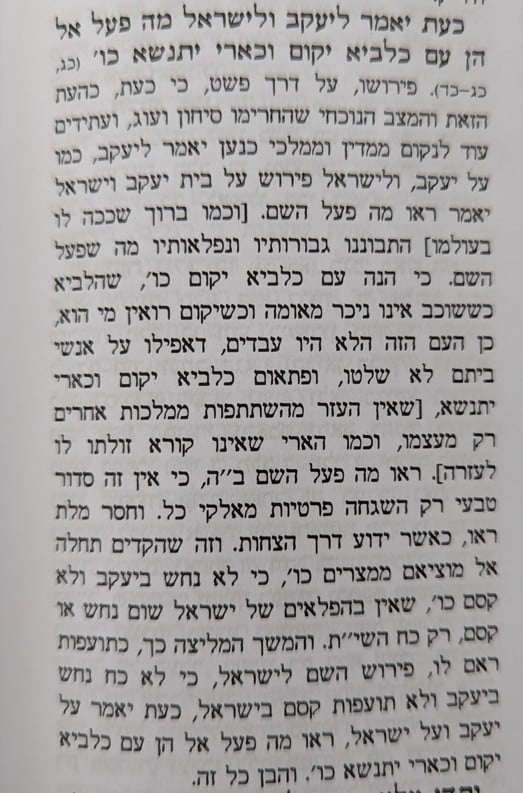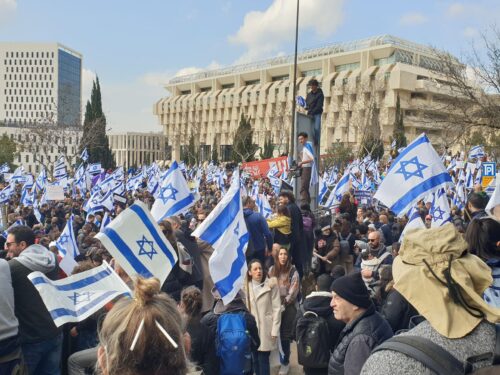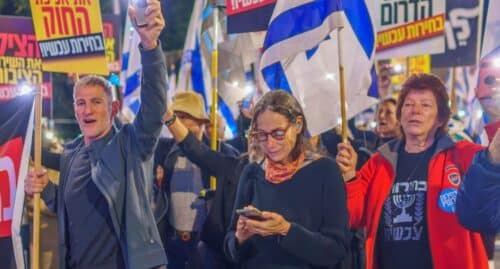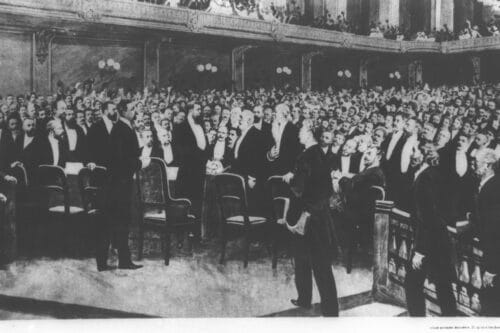
The operation’s name, “Am Kelavi,” is not random. It embodies strength drawn from Jewish culture and identity. This name signifies a worldview that provides meaning and responsibility to everyone involved, including civilians on the home front, operational military units, and decision-makers in the Kirya and Jerusalem.
“Behold, the people shall rise up like a lion”: When the Lion Awakens
The lion (“lavi”) appears repeatedly in the Hebrew Bible as a symbol of calm confidence and genuine power. Jacob blesses Judah, referring to him as a “lion’s cub” who crouches confidently, challenging anyone to provoke him. Similarly, Isaiah uses the metaphor of a roaring lion to describe strength and decisiveness.
However, the verse inspiring the current operation against Iran is unique, as it originates from an external source rather than from within the Jewish nation. The words, “Behold, the people shall rise up like a lion and lift themselves like a lion,” were spoken by Balaam, the prophet originally hired to curse Israel but who ultimately blessed them. What special characteristic did Balaam recognize in the Jewish people? He identified the ability to awaken and rise powerfully precisely when needed.
A lion embodies tranquility when resting, yet does not hesitate to act decisively when challenged. Balaam’s message is clear: never underestimate this nation. Even in apparent rest, it possesses immense underlying strength. When necessary, it will rise and persist until victory is achieved and the mission is fully accomplished.
Today, too, we sometimes fail to recognize our internal strength. Internal disagreements can obscure our true nature, occasionally requiring external reminders like Balaam’s prophecy to reawaken our awareness. October 7 served precisely as such a wake-up call. Initially, we believed we lacked the strength to rise and prevail. Yet unfolding events clearly demonstrate our profound capability, rewriting the Middle East’s history. We truly embody the lion’s nature.
Depending Only on Ourselves
Another crucial aspect is emphasized by Rabbi Meir Simcha HaCohen of Dvinsk, known as the Meshech Chochmah, one of Eastern Europe’s greatest rabbis prior to the Holocaust. He highlights an additional attribute of the lion: independence.
He writes: “For behold, the people rise up like a lion… they receive no aid from other kingdoms, only from themselves, just as the lion never seeks external help.” In other words, just as the lion independently defends its pride, Israel must also independently secure itself without relying on foreign powers. This aligns closely with one of the fundamental principles of the Habithonistim (IDSF) movement: Israel’s security depends solely on itself.

Drawing Strength from Jewish Heritage
“Am Kelavi” (“Like a Lion”) compels us not merely to defend ourselves but to take initiative, assume clear responsibility, make decisive choices, and achieve victory. This responsibility extends beyond ourselves to future generations and the heritage from which we draw our strength. It signifies the courage required to face immense challenges, unwavering determination to accomplish our goals, and mental resilience under fire. This spirit guides us in battle and everyday life.
Selecting a biblical name for the operation provides a clear reminder: our strength is not merely in weaponry, intelligence, or technology. It also, and perhaps predominantly, resides in our human spirit. In this ongoing conflict and in every struggle against adversaries, the Israeli people remain committed to self-defense, firmly rooted in their heritage and just cause.






